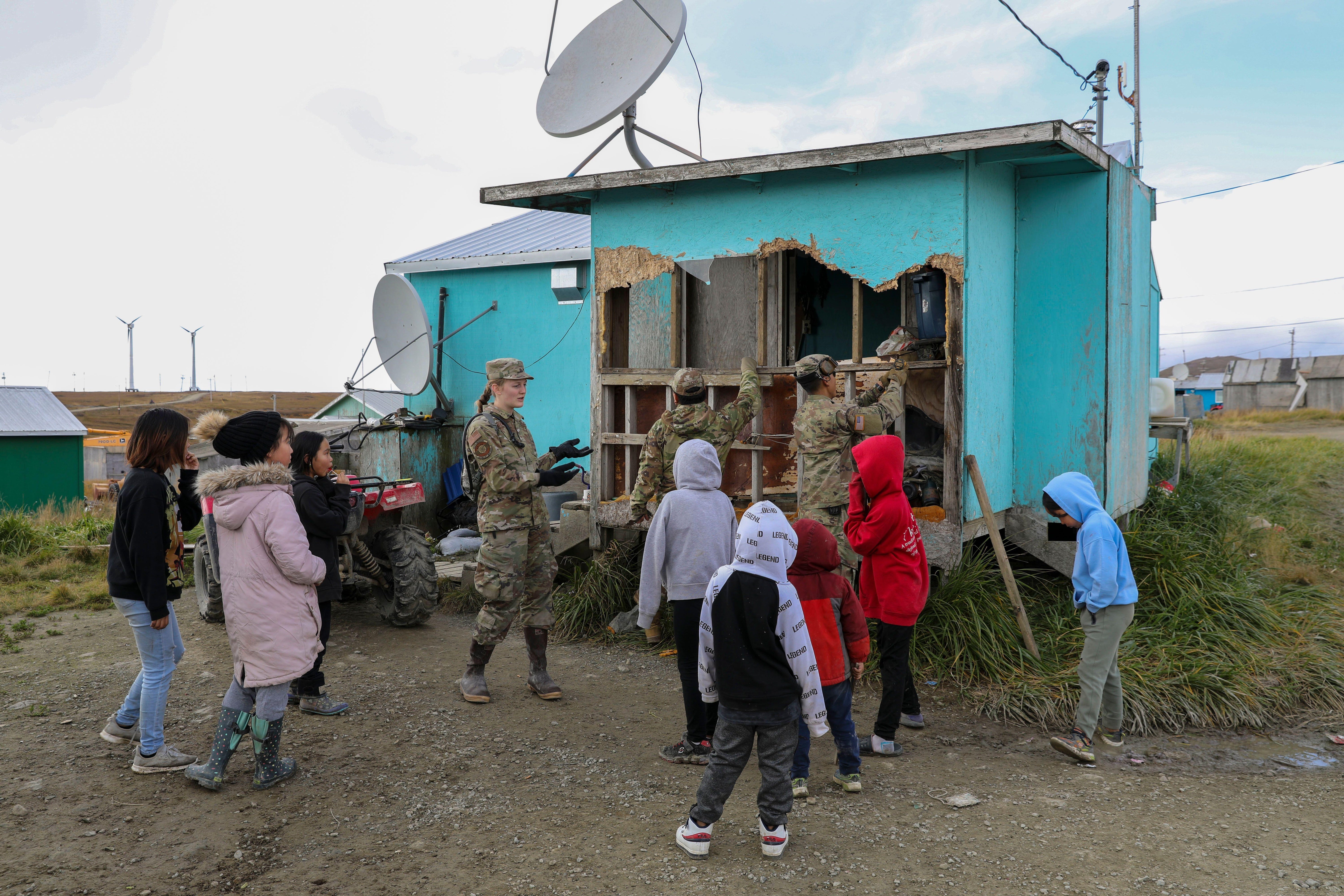
This is Scientific American’s 60 Second Science. I’m Emily Schwing.
Emily Schwing: In September, a massive storm on Alaska’s western coast brought a surge of water 17 miles inland from the Bering Sea to the Cup’ik village of Chevak.
[Sounds of kids playing]
Davis Stone: The storm was crazy.
Schwing: What was crazy about it?
Stone: It flooded down there just like the sea…
Sean Napoleon: It was like an ocean!
Stone: Some powers turned out and some people had to sleep at the school for three days.
Schwing: Just over 900 people live in this community. It sits on a high bank above the Ninglikfak River. Elder John Pingayak says the storm shook his resolve.
John Pingayak: For three days, I was in turmoil because I finally realized how dangerous our situation [is] here in western Alaska. It’s vulnerable from very high winds and a water surge.
Schwing: The impact of the storm, called Merbok, is very real for thousands of rural residents in western Alaska. Dozens of villages saw some level of flooding. People lost power, causing chest freezers to defrost. The power outages destroyed months of subsistence foods that people spent their summers storing up.
Food security in this part of the state is precarious. And on top of defrosted freezers, nearly all of the 90 or so boats people use to go fishing and hunting for their main sources of food in Chevak were damaged or destroyed. Pingayak says the losses are devastating.
Pingayak: It’s our survival. If I’m Cup’ik, subsistence is mine. That’s me. That’s—subsistence is me because I’m the one that’s going out and fishing. I’m the one that’s going out and hunting for my family. And we do it for a livelihood and survival.
Clinton Slats: When the flood came in, it filled up with water, and then it drifted over and sunk right on the river channel.
Schwing: Clinton Slats was in Chevak’s community hall days after the storm to report his losses to two employees who the village’s tribal council had hired to take reports on the damage. He wasn’t sure if he’d be able to retrieve his boat from the bottom of the Ninglikfak River.
Slats: It’s hard to put into words how much it impacts us. I have no way to go hunt and gather with the remainder of the season now by boat.
Schwing: The storm didn’t just destroy boats and motors. Nearly a dozen fishing sheds that held all sorts of gear from rifles to nets, gas cans and rain gear were destroyed. Some had completely disappeared from the riverbank.
Elsewhere across Alaska, summer fish camps and hunting cabins were destroyed. And because the storm arrived in Alaska before the ground was frozen, coastal erosion was extreme.
Rick Thoman: And so, of course, it’s much easier to erode material that doesn’t even have any ice in there to help stabilize it even a little, as compared to the same storm, say, now, where things have started to freeze up.
Schwing: That’s Rick Thoman, a climate specialist at the Alaska Center for Climate Assessment and Policy at the University of Alaska, Fairbanks.
Thoman: But the warming oceans contribute to that longer period of time before freeze up gets going. And that again is something that is sure to continue into the future.”
Schwing: He says conditions this year in the south Pacific were ripe for the development of a storm like Merbok.
Thoman: Historically, the waters in that part of the subtropical Pacific are just not warm enough to support typhoon development. But this year much of the subtropical Pacific east of Japan is far warmer than normal. Some areas are the warmest on record.
Schwing: This storm was rare. Alaska hasn’t seen anything like it in 50 years. Dozens of rural communities saw infrastructure damage in addition to flooding. Many scientists, including Thoman, believe the storm, which originated as a typhoon in the northwestern Pacific, is a harbinger of what climate change could bring to the northernmost U.S. state in coming years.
Thoman: Certainly we know a big contributor to the increased impacts isn’t that there are more storms, but storms are coming when there’s no sea ice.
Schwing: As the coldest months of winter bear down on Alaska, there’s still currently no significant shore-fast sea ice along Alaska’s Bering Sea coast or farther north along the shoreline of the southern Chukchi Sea other than around the mouths of rivers. It’s a phenomenon that has become the norm in recent years.
Thoman: In the 20th century, there would have been sea ice to offer protection or act as a buffer or a wave break. And with that gone, the impacts have increased.
Schwing: After Merbok developed as a powerful typhoon, it made its way north and east toward Alaska. As it did so, it grew into something meteorologists really don’t even have a word for. Some people called it the “remnants” of a typhoon. Thoman referred to it as an “ex-typhoon.” but that kind of language doesn’t do justice in describing its power or immensity. By the time it slammed into Alaska, it had tripled in size alone.
Thoman: Over the long term, there’s not any good, hard evidence of the intensity of these storms increasing. But the background they’re working in—a warmer environment, a less frozen environment—is really, I think, the driver of the impacts.
Schwing: Residents in dozens of western Alaskan communities continue to repair damaged homes and outbuildings and to apply for disaster assistance through the Federal Emergency Management Agency, the state government and other organizations. What Merbok laid bare is their vulnerability and the extreme need for improved and strengthened infrastructure as such storms become the new normal in the region.
For 60-Second Science, I’m Emily Schwing.
